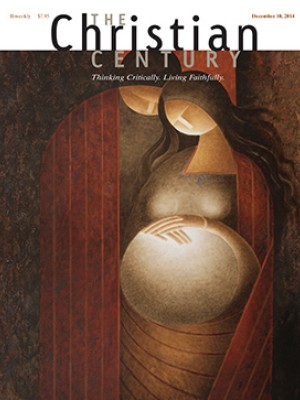Healthy Churches, Faithful Pastors, by David Keck
What’s the hardest thing about being a pastor?” Church members and lay friends ask me this question from time to time, curious about a job that’s not really a job but a way of life. After 15 years of congregational ministry I answer without hesitation: the hardest part of being a pastor is contending with the multiple, contradictory, and competing expectations of the congregation. Classic among these, of course, is: “We want the church to grow, Pastor, but don’t change a thing because we like it the way it is.”
Eugene H. Peterson has encouraged pastors to turn their attention from congregational expectations to vocational holiness. In much of his writing in the 1980s and ’90s he called pastors to resist the temptation of providing religious goods and services to spiritual consumers and challenged them to avoid the lure of careerism. He urged them to tend instead to expectations peculiar to pastoral ministry and necessary for the spiritual vitality of the church. My personal favorite of these books is Under the Unpredictable Plant: An Exploration of Vocational Holiness, which grew out of a 1989 seminar. I return repeatedly to recordings of that seminar for guidance.
Read our latest issue or browse back issues.
In a conversation with a group of pastors and seminary professors several years ago, I had heard Peterson say he had given up writing to pastors about vocational holiness. They weren’t getting it, he said. But the problem with addressing issues of vocational holiness only to pastors is that pastors are accountable to congregations and judicatory leaders who have their own expectations, which may or may not line up with the vocational holiness necessary for vital pastoral ministry. Addressing vocational expectations requires tending to the ecosystems in which pastors live and work.
David Keck’s Healthy Churches, Faithful Pastors is a refreshing addition to the conversation about expectations. Peterson’s vision of vocational holiness resonates with Keck, but Keck takes a different tack. This conversation starter and discussion guide assumes a framework of covenant rather than contract.
The book emerged from a research project funded by the Louisville Institute, which yielded ten organizing principles for a “vibrant church community.” Drawing on his research, Keck also created three composite lay leaders and three composite clergy who act as guides throughout the book. Most of the book is organized by chapters, each addressing an aspect of ministry or congregational life. In the three-chapter section on “what healthy congregations can expect from faithful pastors,” he discusses theology and worship, self-knowledge and self-care, and healthy servant leadership. In the section on “what faithful pastors can expect from healthy congregations,” he focuses on mission and ministry, administration and structure, supporting the pastor, and supporting the pastor’s family.
Keck is a Presbyterian pastor with a Ph.D. in history, but his writing here is accessible rather than academic. Published by Rowman & Littlefield as an Alban Institute book, the volume is in keeping with Alban’s tradition of offering practical help to congregations.
Though Keck’s book is accessible, it is also challenging. I expect that most pastors will at least quibble with some of the expectations, and Keck prescribes some tough-to-swallow medicine for congregations here too. He makes some assumptions about the nature of ministry that will meet with resistance as well. Keck understands pastors to be leaders who equip the saints for ministry, the work of the church. Many congregations expect that pastors will do the work of the church on behalf of its members, and many pastors have been trained to meet that expectation. It’s the cozy circle Peterson had in mind when he challenged pastors to stop being providers of religious goods and services to spiritual consumers.
Keck challenges pastors and lay leaders to take up this conversation. He warns that unless pastors and lay leaders can agree that the purpose of the church is serving God and not its members, and that the pastor’s primary job is leading in that service, any work on expectations is in vain. Expectations need to be developed in the context of mutual ministry—that is, the whole ministry of the church.
I have one significant frustration with Healthy Churches, Faithful Pastors. I’m not sure whom it is intended for, and I’m not sure how to get the conversation started. The book is a discussion guide, but who should be part of the discussion? The church board? A pastor-congregation relations committee? Sunday school classes? Small groups? How should the conversation happen? Who should lead it? Are there models of churches that have done this work and been successful? I came away wanting more direction.
Keck’s work is a valuable contribution to conversations regarding pastor-congregation relations. If only we can discern where those conversations should occur.






